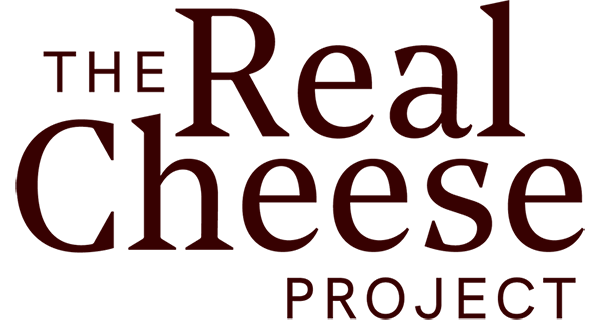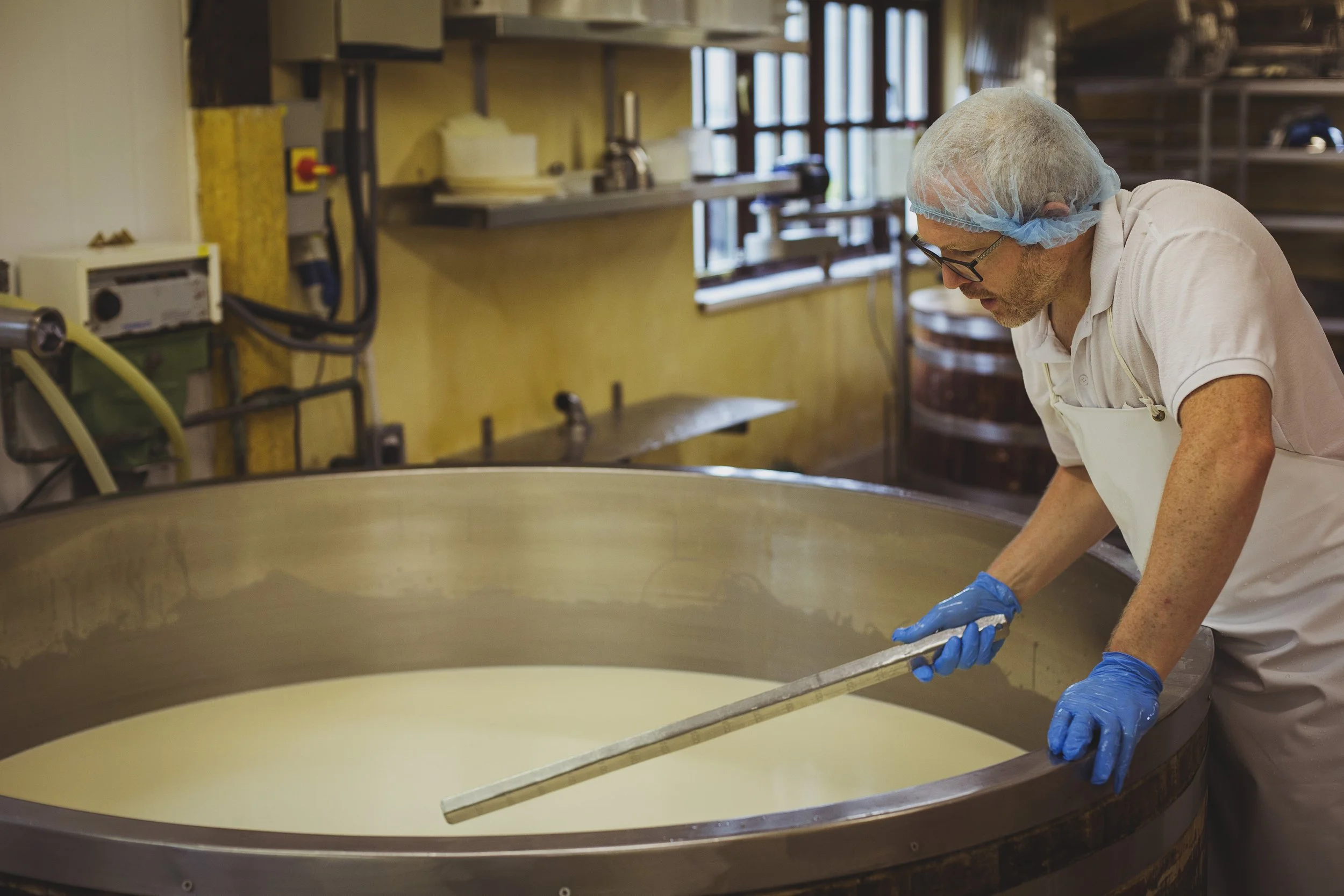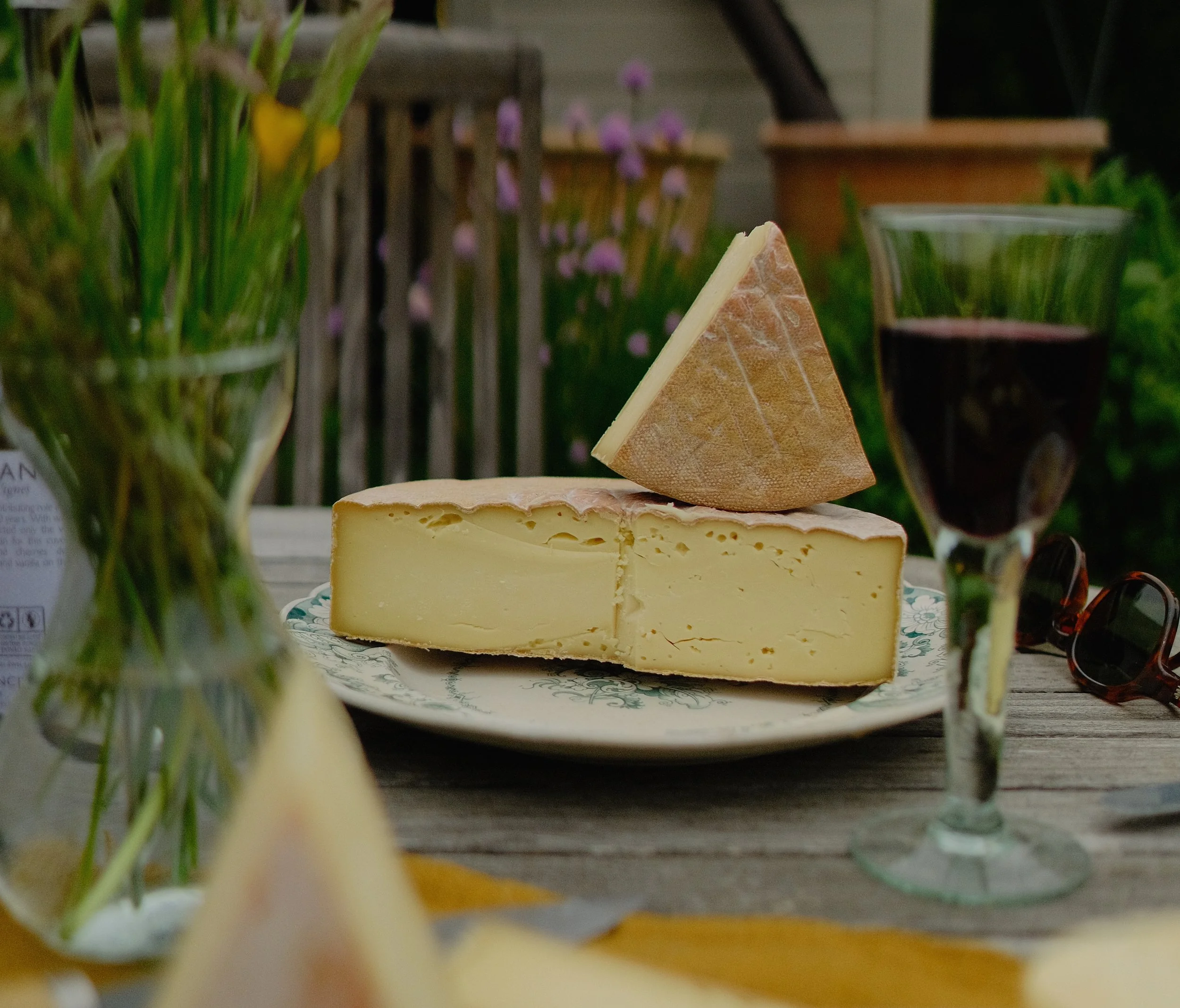HERO CHEESE: Saval
Artisan cheese is living heritage – a collection of steadily evolving practices and traditions passed down through the generations. While many cheeses can trace their origins back hundreds of years, the recipes, techniques and tools used to make them continue to change.
Saval by Caws Teifi
Following the great artisan cheese revival in the 1980s, when a number of new-wave cheesemakers shook off the shackles of post-war Britain to rekindle the real cheese movement, we now have many second or third generation cheesemakers who have become the custodians of these early trailblazers’ legacies.
At Glynhynod Farm in West Wales, Robert Savage is the man carrying the Caws Teifi story forward, having taken the reins from his parents and aunt. And decades after this month’s hero cheese – Saval – became the first semi-hard washed rind cheese to be made in the UK, 40-year old Robert can still remember its creation.
“I didn't know anything about washed rind cheeses. As usual, I was just eating what we had here – chicken, ducks, goats, and of course, cheese. Then all of a sudden, I was tasting this washed rind cheese. I must have been 8 or 9, and was blown away by these new, gamey flavours.”
We visited Robert to hear about Saval’s origins, history and the challenges facing Caws Teifi today.
THE SET UP
Caws Teifi first came to be in 1981 when its founders, John and Patrice Savage-Onstwedder and Paula van Werkhoven, left Holland to purchase a farm in Ceredigion. Their vision was to create a centre for learning organic farming and self-sufficiency, but as Patrice had trained as a cheesemaker in Holland, it wasn’t long before the farm’s raw milk was being made into cheese.
“My mum was an apprentice cheesemaker”, Robert explained, “at a pioneering and community-focussed organic dairy. They produced the first fully autonomous house on solar and wind at this farm, and also made the Netherlands' first certified organic raw Gouda cheese.”
They were drawn to the area as John had recently translated the Complete Book of Self-Sufficiency from English into Dutch, and the book’s author, John Seymour, lived nearby. “It was like the hippy bible”, said Robert, “for living on the land, you know – the good life.”
Suitably inspired to create something special in West Wales, Glynhynod Farm was founded and Patrice began making an organic, raw milk Gouda based on a 500-year old recipe. Named ‘Teifi’ after a nearby river, this cheese is still at the core of the range today.
“Mum’s cheesemaking was all about feeling. She didn’t have any tools to measure pH levels or TA (titratable acidity), so it was about feeling the curd - having your hands in the milk to adapt each day’s make. Our head cheesemaker, Tim Mitchell learned this from her. Of course he uses the pH and TA make tweaks, but those organoleptic qualities are still very important.”
They soon made friends with James Aldridge, one of the key figures behind UK’s artisan cheese revolution. James had a special interest in washed rind cheeses, and collaborated with Caws Teifi to create two new washed cheeses based on traditional Caerphilly recipes; Celtic Promise, and Saval. “The name Saval is a portmanteau of Savage and Aldridge. It became our flagship cheese. There’s a lot of history in this cheese.”
Not content with producing one of the first washed rind cheeses in the UK, Robert’s father, John also tapped into his Scottish roots to produce the first organic whisky in the world.
“He took a briefcase and an idea to Sringbank on the Mull of Kintyre around 1992. He didn't really have the money to do it, so he sold the whisky as futures, getting all 2,000 bottles paid for before distilling, then delivered it in time for the Millenium.”
The Dà Mhìle brand (meaning 2,000) now produces whisky, gin, spirits and liqueurs, headed up by Robert’s brother, John-James.
With each of John and Patrice’s sons now steering different parts of the family business forward, the farm’s legacy continues to evolve.
THE STORY
As with many 2nd generation cheesemakers, Robert had once imagined a life away from the family farm, but there’s always something that drags them back in. For Robert, it was a trip to Australia to visit his sister, who was working as a cheesemaker at Holy Goat – a dairy founded on sustainable organic principles and holistic respect for their animals.
“When I visited in 2019, their ethos really inspired me, and we were at a tipping point, where Dad just wanted to retire.”
And if he needed an little nudge in the right direction, his sister was on hand with some tough love. “They were making lactic goat’s cheeses, which require a different kind of finesse to things like Gouda”, explained Robert. “I just wasn’t gentle enough, and my sister, Anne Marie called me ‘dog shit in the cheese’. I definitely took a bit of inspiration from that bollocking.”
Robert took the reins soon after, and is now building on his family’s legacy. During our visit, building was literally in progress at the dairy, which is being extended to provide more space for making, maturation and a cheese cutting machine to save on hours of manual labour, following an increase in pre-cut orders from local shops.
While staying true to the ethos of the farm, Robert knows that the business must adapt to the world around it, whether that means cutting more cheese, or making difficult decisions around where their milk comes from. Raw and organic were founding principles of Caws Teifi, but the complexities of real life farming rarely go in hand-in-hand with binary thinking.
“Wales has been badly hit with TB in recent years, which is difficult for raw milk cheesemakers. We buy from four different farms to spread the risk and pay a premium so we can insist on various hygiene practices. But when we have to stop buying from one of them after a TB outbreak, this can be extremely damaging for their businesses.”
Robert decided that looking these farmers was more important than an unerring commitment to raw milk, so found a way to incorporate pasteurised milk into the range. “A third of our annual production is now halloumi, so we decided to start here. It makes me nervous, but I couldn’t let relationships break down with farmers who really believe in us.”
To meet demand, Caws Teifi has also bought in non-organic milk for the first time, but has used this an opportunity to help suppliers introduce more sustainable farming practices. “It’s interesting”, he told us, “in our organic echo chamber, we’re preaching to the converted with very little changing. But by buying from a conventional farm, we’ve seen really positive changes taking place that will significantly impact the environment and herd health, so there’s been some huge benefits I hadn’t anticipated.”
There’s no easy answers here, but this is a real cheese story – the story of product handmade using local milk, crafted with respect for the land, people and animals.
Robert Savage
THE CHEESE
Now made by cheesemakers Tim, Claire and Naomi, using milk sourced from a handful of local farms, Saval is a semi-hard cheese washed in brine - the process that transformed a humble Welsh Caerphilly into a landmark in British cheese history.
Still turning heads with its wrinkled, pink-ish rind and punchy aroma, Saval is rich, creamy, tangy and savoury, with a buttery centre. It has some serious length on the finish, which will keep you coming back for more. Cheese judges over the years have tended to agree, with accolades including Golds at the World Cheese Awards, and The James Aldridge Memorial Trophy for the Best British Raw Milk Cheese. But as a living piece of our cheese heritage, it never stands still.
“As much as we try to bend the world into how we want it to be”, said Robert, “there's inevitably going to be variation, and that’s the amazing skill of cheesemakers - to be able to tweak your recipe to produce a different, but consistently good product. People have to be involved. Machines just aren’t that clever yet.”
Saval - Photo credit: Angus D. Birditt




